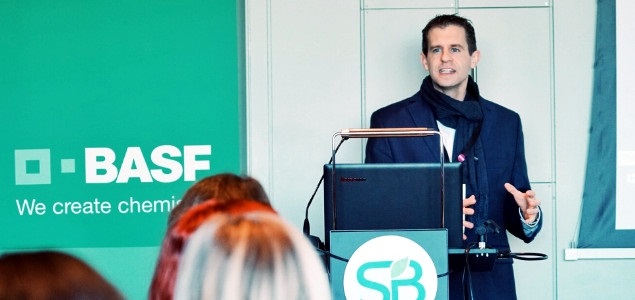-
Nutrivend selects Forterro’s Orderwise to support online expansion and streamline operations - April 11, 2025
-
ARROWXL LAUNCHES AMBITIOUS ZERO WASTE ROADMAP - April 8, 2025
-
THE BCMPA’S NEW CAMPAIGN DRIVES OUTSOURCING SUCCESS IN Q1 - April 7, 2025
-
BLACKOUT TECHNOLOGIES TARGETS TELEMATICS-INTEGRATED MOBILE DEVICE BLOCKING TO COMBAT SMARTPHONE DISTRACTION - April 1, 2025
-
Sparck Technologies awarded Royal designation - March 27, 2025
-
OpenADR Alliance announces first OpenADR 3.0 certified products with EVoke Systems, E.ON Energy and Universal Devices - March 25, 2025
-
Growing fulfilment and contract packer appoints new Managing Director - March 25, 2025
-
When is it time to invest in a WMS? Understanding the key trigger points - March 25, 2025
-
eCapital helps Vantage Recruitment on its journey to financial success - March 24, 2025
-
Hugo Beck Celebrates 70 Years of Packaging Innovation with Open House Events - March 20, 2025
The Role of Communication in Shifting Away from Fossil-Based Supply Chains.
Consumer demand for more socially and environmentally responsible products continues to rise, a trend that is increasingly putting pressure on companies to embrace materials and processes with less pronounced impacts. The business case is clear — act now or risk falling behind — yet the road to sustainability is not so cut and dry. Adopting innovative methods and exploiting new business opportunities while making them understandable and attractive to customers is a considerable challenge.
On Monday, day one of SB’17 Copenhagen, BASF shared a new method it developed in partnership with certification body TÜV SÜD to reduce fossil-based resources in the supply chain by replacing them with ‘renewable’ resources with sustainability certification. Dubbed the biomass balance method (BBM), it sees renewable raw materials derived from organic waste or vegetable oils added to fossil fuels at the very beginning of the chemical production process. The bio-based amount is then allocated mathematically to specific products. An independent certification by TÜV SÜD confirms that BASF has replaced the required quantities of the fossil feedstock with renewable feedstock via the BBM.
As a drop-in solution, the BBM offers an easy way for businesses to get their foot in the door and initiate immediate and impactful changes to their offerings without compromising on product performance or efficiency. BASF has already applied the method in three very different applications with packaging giant SIG Combibloc, coatings manufacturer DAW Nordic AB and Klättermusen, a Swedish outdoor apparel company. Though their products couldn’t have been more different — a 100 percent renewable, FSC-certified paperboard and bio-based plastic carton; a dust-free premium paint; and biomass-balanced polyamide clothing, respectively — the three companies each encountered a common challenge: how to communicate the strategy to consumers, clients and colleagues.
During the workshop, questions about cost dominated the conversation. Many attendees indicated that in meetings with procurement, the discussion often ended when the talk shifted to numbers. Is the method, with its cost implications, really worth the investment? SIG’s Udo Felton and Jonas Karlsson of DAW Nordic AB said yes. The method allowed them to immediately begin integrating renewable materials into their supply chains without undergoing a complete and total overhaul, but the move is likely to give them an edge in their markets. However, communicating about the method that brings these benefits to fruition is a complicated task.
There are currently no labels or standards in place — outside of the TÜV certification — that businesses can use to communicate their best-in-class products and procedures. The general consensus in the room was that those using the biomass balanced method must advocate for existing standards to open themselves up to this new methodology. It was also suggested that BASF brand the method in order to make it easily recognizable, a move which could be beneficial in terms of generating internal buy-in and consumer trust.
The discussion further revealed that while considerable progress is being made on the technological front and sustainability is increasingly at the forefront of companies’ minds, the focus on the how continues to be overshadowed by the why in terms of taking climate action.
































